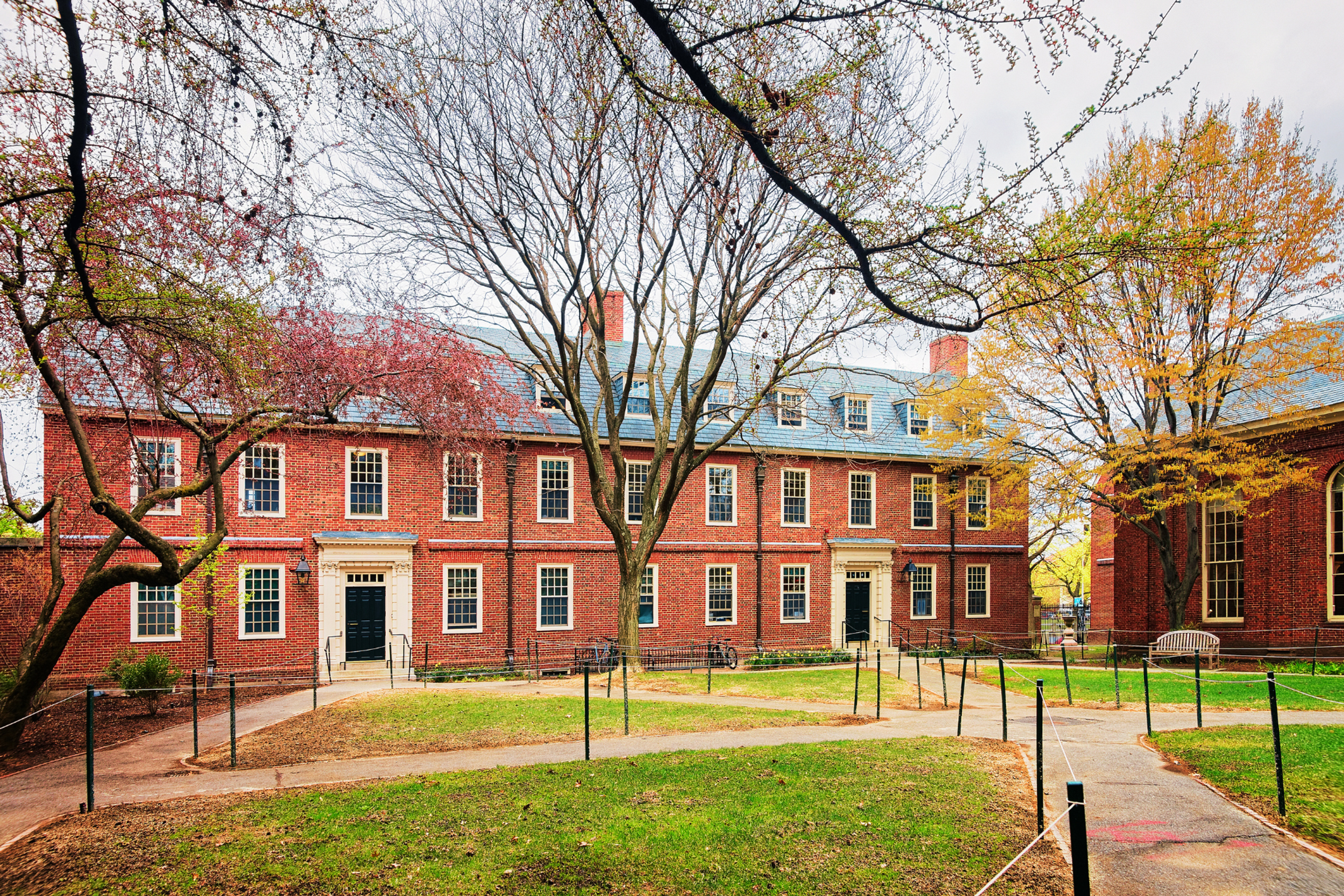PA School Acceptance Rates – Breakdown & Analysis (2026)
UC Berkeley acceptance rate explained with a clear strategy. Learn how competitive admissions are and what strong applicants do differently in 2026.
Posted January 7, 2026

Join a free event
Learn from top coaches and industry experts in live, interactive sessions you can join for free.
Table of Contents
For students pursuing a healthcare career, the path to becoming a physician assistant (PA) is both competitive and rewarding. With a deep understanding of PA school acceptance rates and the factors influencing PA school admissions, you can better prepare your PA school applications and improve your chances of acceptance. This guide covers everything from PA program acceptance trends to key factors in physician assistant school admissions.
Average PA Acceptance Rates
Physician Assistant (PA) programs in the United States are highly competitive, with acceptance rates generally ranging between 20% and 31%. This means that out of all applicants, only about one-fifth to one-third are admitted in a given admissions cycle. In comparison, medical schools have an average acceptance rate of approximately 42%, indicating that gaining admission to PA programs can be more challenging than to medical schools.
Acceptance rates can vary significantly among individual PA programs. For instance, top-tier programs like Duke University have acceptance rates as low as 2.3%, while others, such as George Washington University, have rates around 6%.
Why PA School Acceptance Rates Matter
Physician assistant school acceptance rates are an important indicator of program competitiveness. With acceptance rates typically ranging from 3% to 14%, PA school admissions can be challenging, particularly for top-tier physician assistant programs from top medical schools. For prospective PA school students, reviewing school acceptance rates allows for more strategic choices during the application process, helping you target PA programs that align with your academic and career goals.
Understanding acceptance rates also provides insight into the caliber of students admitted, which can help applicants assess their own competitiveness. Knowing the average GPA, GRE scores, and prerequisite courses required by many PA programs can guide you as you tailor your personal statements and resumes. Many PA schools also prefer applicants with extensive healthcare experience, which can be a deciding factor in gaining admission.
Trends in PA School Acceptance Rates Over the Years
According to the Physician Assistant Education Association (PAEA), the average PA school acceptance rate across programs remains below 20%, with some highly competitive schools admitting only a small percentage of applicants. This trend reflects a growing demand for physician assistants, with more individuals aiming to get into PA school as an alternative to medical school due to the career's stability and opportunities in healthcare.
As the field grows, the average PA school applicant now faces increased expectations. Admissions committees look for higher qualifications, including extensive healthcare experience, a competitive GPA, and a strong personal statement. Many PA programs even offer a rolling admissions process, which allows them to review applications and fill available spots early in the cycle. This rigorous selection process has made it essential for applicants to distinguish themselves to get into PA school, often mirroring the competitiveness seen in medical school acceptance rates.
These trends emphasize the importance of preparing a strong application, meeting all minimum requirements, and submitting early to maximize the chances of acceptance in today’s competitive PA school landscape.
Factors Influencing Acceptance Rates in PA Schools
- GPA and academic performance: Many physician assistant programs have a minimum GPA requirement, often set at 3.0 or higher, with highly competitive PA programs expecting GPAs closer to 3.5. Academic performance in science courses, especially within health sciences, is also critical.
- Healthcare experience: A significant factor in PA school admissions is direct healthcare experience. Many PA schools prefer applicants with hands-on experience in roles such as certified nursing assistant (CNA) or EMT, as this exposure highlights a candidate’s familiarity with patient care.
- GRE scores: While not all PA programs require GRE scores, many competitive programs consider them in admissions. Strong GRE scores can positively influence an applicant’s profile, particularly if they have other strengths in their application.
- Personal statement: A compelling personal statement is essential in differentiating oneself from other applicants. Candidates should focus on explaining their passion for the PA profession and demonstrate their commitment to healthcare. A strong personal statement should reflect a deep understanding of the physician assistant role and highlight relevant experiences that make the applicant a good fit for PA school.
- Prerequisite courses: Most PA schools require specific prerequisite courses, often in areas such as biology, chemistry, and anatomy. Completing these courses with a high GPA signals preparedness for the rigorous PA curriculum.
How to Increase Chances of PA School Admission
Though PA school acceptance rates are low, applicants can take several steps to enhance their chances of admission:
Gain Diverse Healthcare Experience
Applicants with experience across various healthcare settings, such as hospitals and clinics, demonstrate versatility and commitment. Many PA programs value this background as it prepares students for a range of healthcare challenges.
Apply to Multiple PA Programs
With average acceptance rates of around 14%, applying to multiple PA schools increases the chances of acceptance. Each PA program has unique requirements and preferences, so diversifying applications is a smart strategy.
Tailor Each PA School Application
Customizing applications to reflect each program’s values can make a strong impression. This includes highlighting the applicant’s alignment with the school’s mission and focusing on relevant skills in the personal statement.
Network with PA School Alumni and Attend Information Sessions
Engaging with current PA school students and alumni provides insight into the program’s expectations and culture, helping applicants present themselves as a good match.
GPA Requirements for Physician Assistant School Admission
The minimum GPA requirement for PA school admission typically ranges from 3.0 to 3.5, with competitive programs often expecting higher GPAs. Admissions committees assess both overall GPA and science GPA to determine an applicant’s readiness for the rigorous PA curriculum. While GPA is not the sole factor in PA school admissions, a strong GPA helps applicants stand out, particularly in competitive programs where average acceptance rates are low.
How to Choose the Right Undergraduate Major for PA School
The undergraduate major is not typically a requirement for admission into a PA program. However, some majors may be better suited for preparing students for PA school. Here are a few recommendations on how to choose the right one:
- Understand PA program requirements: While PA programs don’t typically require a specific undergraduate major, selecting one that aligns with PA school prerequisites can be beneficial.
- Consider majors in biological and health sciences: Majors such as biology, biochemistry, and health sciences provide a strong foundation in biological and health sciences, which can help prepare you for PA school coursework.
- Explore clinical experience-oriented majors: Fields like nursing, EMT or paramedic certification, and medical assisting offer hands-on clinical experience and knowledge, which are valuable for PA school applications.
- Align your major with your interests and strengths: Choosing a major that genuinely interests you will help you excel academically. Admissions committees look at GPA, healthcare experience, and personal qualities, so it’s essential to pick a field where you can succeed and develop relevant skills.
- Focus on building a well-rounded application: Remember, admissions committees evaluate multiple factors, including GPA, healthcare experience, and personal attributes. Pursuing a major that you’re passionate about will allow you to gain meaningful experience and stand out in your application.
Tips for Crafting a Winning Personal Statement for PA School
A well-written personal statement is crucial for applicants looking to gain admission into highly selective physician assistant programs. The following key tips will help applicants ace their personal statement:
- Start with a compelling introduction: Begin with a personal story or experience that sparked your interest in the PA profession. Make it memorable and unique to help your statement stand out.
- Showcase your passion for healthcare and patient Care: Clearly convey your commitment to the field of healthcare and patient care. Use specific examples from your clinical experiences to illustrate your dedication and empathy.
- Highlight relevant skills and experiences: Share skills that will make you a strong PA, such as teamwork, problem-solving, or communication, and back them up with examples from your academic, clinical, or volunteer experiences.
- Be Specific about your goals as a PA: Explain why you want to be a physician assistant rather than another healthcare role. Describe your career goals and how a PA program aligns with them.
- Address any challenges or setbacks: If you have any academic or personal challenges on your record, briefly positively address them. Show how you grew from the experience and how it has prepared you for PA school.
- Avoid generic statements and clichés: Admissions committees read many personal statements, so avoid clichés. Instead of saying you “want to help people,” show it with specific experiences that convey empathy and a strong work ethic.
- Reflect on what you learned from clinical experiences: Describe your clinical experiences in a way that shows your insights into patient care and your understanding of the PA role. For instance, discuss moments that taught you the importance of compassion, teamwork, or resilience in a healthcare setting.
- Edit and proofread carefully: Ensure that your personal statement is free from errors. Spelling and grammar mistakes can create a negative impression, so proofread multiple times and ask mentors or PA professionals for feedback to ensure clarity and polish.
- Stay within the word limit: Follow any length requirements closely. A concise, focused personal statement is more impactful than one that tries to cover too much ground.
- End with a strong closing statement: Conclude by reinforcing your enthusiasm for becoming a PA and your readiness for the challenges of PA school. Make a lasting impression that leaves the admissions committee confident in your commitment and potential.
The Importance of Clinical Experience in PA School Admissions
Clinical experience is essential for gaining acceptance into PA programs, as it provides evidence of the applicant’s understanding of patient care. Many PA schools require a minimum number of clinical hours, often preferring candidates with backgrounds as CNAs, EMTs, or other healthcare roles.
This experience provides PA school students with a realistic understanding of the demands and responsibilities of the physician assistant profession, giving them a strong foundation for success in their studies and future careers.
How to Prepare for PA School Interviews and What to Expect
1. Research the program thoroughly
Understand the specific mission, values, and unique aspects of the PA program you’re interviewing with. Knowing program details, such as areas of emphasis or teaching methods, demonstrates your genuine interest and helps you prepare for questions on why you’re a good fit.
2. Practice common interview questions:
Prepare answers for frequently asked questions, such as:
- “Why do you want to become a physician assistant?”
- “What specific experiences have prepared you for a career as a PA?”
- “How do you handle high-pressure situations or conflicts in a team setting?” Practice responses to these questions aloud to build confidence in your answers and improve delivery.
3. Reflect on your clinical and healthcare experience:
Be ready to discuss specific patient-care experiences that shaped your commitment to the PA profession. Think of situations where you demonstrated empathy, adaptability, or resilience. The interview panel wants to see that you’re prepared for the challenges of patient care.
4. Prepare to address strengths and weaknesses:
When discussing your strengths, focus on qualities relevant to the PA role, like problem-solving or communication skills. For weaknesses, choose one that you’ve actively worked to improve, and explain how you’ve grown as a result.
5. Develop a clear vision for your PA career:
Articulate your goals as a future physician assistant. Consider how you see yourself contributing to the healthcare field and why this specific program aligns with your long-term career vision. Showing a clear direction for your PA career demonstrates maturity and dedication.
6. Practice nonverbal communication:
Body language, eye contact, and a confident demeanor all play a crucial role in interview success. Conduct mock interviews with a friend, family member, or mentor to receive feedback on your posture, tone, and overall presence.
7. Ask thoughtful questions for the panel:
Prepare a few insightful questions for the panel to show your interest in the program, such as:
- “What do students find most rewarding and most challenging about this program?”
- “Are there opportunities for clinical rotations in underserved areas?”
- “How does the program support students in preparing for certification and finding jobs post-graduation?”
Common Mistakes to Avoid When Applying to Physician Assistant Schools
There are several common mistakes that applicants make when applying to a physician assistant medical school. These include:
Submitting Incomplete Applications
Ensure all required documents, such as transcripts, letters of recommendation, and personal statements, are submitted by the deadline. An incomplete application can lead to automatic rejection.
Not Meeting Minimum Requirements
Carefully review each program’s specific requirements, including GPA, healthcare experience hours, and prerequisite courses. Failing to meet minimum requirements can significantly lower your chances of acceptance.
Underestimating the Importance of a Well-Written Personal Statement
A generic or poorly written personal statement can harm your application. Tailor your personal statement to each school, showcasing why you’re a strong fit for their program specifically.
Ignoring Program-Specific Prerequisite Courses
Many PA programs have unique prerequisite course requirements, often in sciences like microbiology or anatomy. Review these requirements early to ensure you’ve completed or planned for the necessary coursework.
Failing to Proofread Your Application
Typos, grammatical errors, and inconsistencies in your application can make a poor impression. Take the time to proofread and ask a mentor or advisor to review your personal statement and other application components.
Applying Late in the Admissions Cycle
Many PA schools use rolling admissions, meaning they evaluate applications as they come in. Applying early increases your chances of receiving an interview offer, as spots may fill up quickly.
Submitting Generic Letters of Recommendation
Choose recommenders who know you well and can speak specifically to your skills and experience in healthcare. Generic or impersonal letters can weaken your application.
Skipping Mock Interviews
Mock interviews help you prepare for the real experience by providing practice with common questions and feedback on your responses. Skipping this step can leave you unprepared for the high-stakes environment of the actual interview.
Not Tailoring Applications to Each Program
Demonstrate why you’re specifically interested in each program, rather than submitting identical applications. Research each program’s unique qualities and explain why they’re a good fit for your career goals.
Overlooking the Importance of Clinical Experience
Clinical hours and direct patient care experience are crucial for PA school admissions. Lack of hands-on experience can make it challenging to compete with applicants who have substantial patient-care backgrounds.
Alternatives to Traditional Physician Assistant Programs
For those interested in becoming a physician assistant but seeking different routes than traditional programs, there are several viable alternatives that might suit varied backgrounds and career goals. These pathways cater to healthcare professionals looking to transition efficiently into the PA role.
1. Accelerated PA Programs
Accelerated programs are designed for highly motivated individuals who want to complete their physician assistant education in less time than standard programs. These condensed programs, which often run continuously throughout the year without long breaks, can be rigorous but allow students to enter the workforce sooner.
2. Bridge Programs for Healthcare Professionals
Bridge programs are excellent options for individuals with prior healthcare experience, such as registered nurses, paramedics, or even former medical school students who wish to pivot to the PA profession. These programs typically recognize past education and experience, allowing qualified students to complete the physician assistant curriculum more quickly. Bridge programs are ideal for those already familiar with patient care and medical environments.
3. Pre-PA to PA Transition Programs for Current PA Students
Some universities offer transition programs for PA students already enrolled in a bachelor-level PA program who want to advance to a master-level program without starting from scratch. These programs allow students to build on their existing coursework and clinical experience, facilitating a seamless progression to earn a higher-level PA credential.
4. Direct Entry Master’s Programs
Direct entry master’s programs are designed for students who have completed an undergraduate degree in a related field, such as biology or health sciences. These programs do not require students to have previous clinical experience, making them suitable for those transitioning directly from undergraduate studies.
5. International PA Programs
For those interested in a global perspective, some medical schools and universities abroad offer physician assistant studies. These international programs can provide diverse clinical experience, expose students to different healthcare systems, and offer shorter pathways to licensure in certain countries.
Best Resources for Researching Physician Assistant Schools and Programs
When researching physician assistant schools and programs, using credible and comprehensive resources is essential. Here are some of the best platforms to support your research journey:
- Physician Assistant Education Association (PAEA): The PAEA offers a searchable database of accredited PA programs in the United States. Their platform provides information on program locations, application requirements, tuition, and more, helping prospective students find the right fit.
- National Commission on Certification of Physician Assistants (NCCPA): The NCCPA is the only certifying organization for PAs in the United States and provides vital information on certification and continuing education requirements for practicing PAs.
- American Academy of Physician Assistants (AAPA): The AAPA is a leading organization offering a wealth of resources on the PA profession, including news updates, advocacy information, and continuing education opportunities. It also provides guidance on preparing for and applying to PA programs.
- Accreditation Review Commission on Education for the Physician Assistant (ARC-PA): ARC-PA is the official accrediting body for PA programs in the U.S., and its website features a list of accredited PA schools. It’s an invaluable resource for confirming program quality and accreditation status.
The Bottom Line
Getting accepted into a physician assistant program can be a challenging and competitive process. However, by understanding the factors that influence PA school acceptance rates and utilizing the tips and resources provided in this article, you can increase your chances of getting accepted into a program that will provide you with the education and tools you need to succeed in the field of healthcare.
Get Personalized Guidance From a PA Admissions Expert
For more guidance on applying to PA programs, including help with personal statements, interviews, and program research, consider reaching out to Leland’s expert admissions coaches who specialize in PA school admissions.
Read these next:
- Top 15 Medical School Acceptance Rates & Class Profiles | Leland
- The Ultimate Guide to the Medical School Application
- The Top 10 Medical Schools in the US
- MD Application Deadlines of the Top 50 Medical Schools
- The Best 50+ Free Resources for the MCAT Exam
FAQs
How to answer "Why do you want to go to this PA school?"
- Highlight specific aspects of the curriculum, such as interprofessional collaboration, clinical experience, community outreach, or other program opportunities, that resonate with you. Discuss how these elements will contribute to your growth as a PA and align with your long-term career objectives.
What is the hardest year of PA school?
- Which Year Of PA School Is The Hardest? Most PA students report that the first year, or didactic year, is the most challenging. During the first year, students are required to learn and remember a lot of new information.
What degree do most PA students have?
- To become a PA, you'll need to have a master's degree in PA studies from a university program that has been accredited by the Accreditation Review Commission on Education for the Physician Assistant (ARC-PA). Most PA programs require going to school full-time for two to three years.
How to become a PA in the USA for international students?
- To obtain a license, an individual (even one educated as a physician in another country) must graduate from an accredited United States Physician Assistant Program AND pass the Physician Assistant National Certifying Exam (PANCE) administered by the National Commission on Certification of Physician Assistants (NCCPA).
What is the easiest school to get into for PA?
- Some of the easiest PA schools to get into, based on admissions data, are Tufts University, Wingate University, West Coast University, and Florida Gulf Coast University.
Browse hundreds of expert coaches
Leland coaches have helped thousands of people achieve their goals. A dedicated mentor can make all the difference.


















